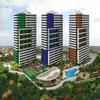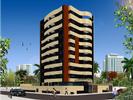Brazil Country Information
Properties for sale by this property agent:
 | |
|---|---|
| Apartment for sale | |
| Location: | Alagoas, Maceió |
| Beds: | 1 |
| Price: | R$276,300 |
 property details property details | |
 | |
|---|---|
| Apartment for sale | |
| Location: | Alagoas, Maceió |
| Beds: | 2 |
| Price: | R$277,000 |
 property details property details | |
 | |
|---|---|
| Apartment for sale | |
| Location: | Alagoas, Maceió |
| Beds: | 1 |
| Price: | R$223,000 |
 property details property details | |
Agent
This article has been submitted by a user of this site. Click the logo for more details.
Article
Article by: emmanuel@seekinternationalproperty.net (Emmanuel Adeyanju) Published: 15/02/2012
Brazil Country Information
Investor surveys consistently place Brazil in the top five of most exciting emerging international property hotspots. It seems that Brazil has finally woken up to the potential benefits of attracting investors increasingly tired of an oversaturated European property market, undaunted by novelty and keen to try something a little more adventurous. Record low levels of inflation, coupled with an economic drive aimed at securing the interest of increasing numbers of visitors, themselves spurred on by cheaper flights, has led to a surge in interest by those keen to take advantage of what are undoubtedly excellent prospects for capital return. It is worth noting that foreign tourism between 2002-2005 increased by a massive 48% as a result of the country’s determined efforts to maintain fiscal harmony and increase local investment.
Travel
Getting to Brazil is getting easier and easier, with low cost airlines catching the Brazilian bug and offering cheap and cheerful flights by the bucketload. BA and the main Brazilian carriers Varig and Gol fly to either São Paulo (Guarulhos/Cumbica) or Rio de Janeiro (Tom Jobim/Galeão) on a daily basis but it is of course possible to get there via all of Europe’s main cities using other national carriers. Other airports in Brazil include Recife, Natal, Fortaleza, Belém and Manaus. For international flights, the departure tax is US$36, often included in the ticket cost. Taxis are widely available from the two main airports and are the most convenient options, with fares to São Paulo typically costing R$55-R$60 and R$40-R$45 to Rio de Janeiro. Airport buses also run to and from the airports to key city points and main hotels.
There is no rail service in Brazil but there are good long-distance express bus services between São Paulo and Rio de Janeiro and to other large towns. Seats can be booked in advance and this option is relatively cheap if the distances involved are not too great.
By far and away, the best option for getting around Brazil is to fly. Flights between major cities are frequent but they are expensive. You will need proof of identity on all forms of intercity transport.
Car hire is possible in the larger towns and of course from the main airports. Ensure that you have a valid international license with you and that it is valid for Brazil (not all are). Bear in mind that parking is often tricky and that you may have to employ an impromptu guard to make sure your car stays safe.
Passports and Visas
United States, Canada and Australia nationals need a visa to visit Brazil. British nationals and most EU passport holders do not need a visa for a stay of three months or less. Other nationals should check before making any travel arrangements. Passports should be valid for at least three months after the date of your arrival in Brazil. If it will expire within three months of your departure from Brazil get a new one before travelling.
Electricity
There is, rather confusingly, no standard electricity voltage system in Brazil, so it is good to check before you travel. It varies throughout the country between 110 volts and 220 volts and all are on 60Hz (the UK is 50Hz) which can affect some electrical equipment. São Paulo is generally 110 volts and 220 volts. Brasilia is 220 volts; Rio de Janeiro is mainly 110 volts. Lamp sockets are screw-ins and plugs are two-pin round or flat.
Currency
The currency in Brazil is called the Real/ Reais(symbol R$), a system only adopted in 1994 following a variety of changes to the national economy which saw the currency name and value change all-too frequently. R$1 = 100 centavos and notes are in denominations of R$100, 50, 10, 5, 2 and 1. Coins are in denominations of R$1, and 50, 25, 10, 5, and 1 centavos.
Many Brazil banks have ATMs enabling you to withdraw foreign currency during your stay in Brazil and most banks have English speaking staff on hand, especially in the foreign exchange section. Although Brazil is predominantly a cash economy, the use of debit and credit cards is on the increase. Cheques and credit cards are mainly used by foreigners.
Communications
Telephones
Country Dialing Code: 00 + 90 + 55.
Brazil has a fantastic communications network, including an extensive telephone system which allows you to call anywhere in the world. Public phone cards are available virtually everywhere and can be used to make national and international calls. Good Internet services are also widely available, in hotels and in the many Internet cafes all over the country.
Culture
Brazil’s past is complex and the country’s culture has been shaped not only by the Portuguese, whose arrival in 1500 gave the country its most common religion and language, but also by the country’s original inhabitants, native Indians, the considerable African population brought in as slaves to work on sugar plantations in the 16 th century, and other settlers from Europe, the Middle East and Asia. As a result, the country is a heady cocktail of samba and folk music, vibrant colour and fashionable people, steeped in a rich heritage of sugar, coffee and gold. Brazil emerged from twenty-one years of military rule in 1985 and has had four Presidents since. Its current President, the popular Luiz Inácio Lula da Silva, is chiefly responsible for implementing tax and social reforms that are driving Brazil towards an even more confident future.
Cuisine
The rich diversity of Brazil’s past has led to a wonderful mix of cuisine and what you eat while in Brazil depends very much on where you are. Brazilians love to eat out and late and you will find many good quality restaurants in larger cities. On the whole, food is milder and meatier in the south of the country, spicier from Bahia northwards, where the traditional Indian influence is strong. Fish, root vegetables such as manioc (a potato-like grain), yams, and peanuts, plus palm or tropical fruits feature strongly here. The cuisine of the north east coast is distinct, having evolved from plantation cooks improvising on African, Indian and Portuguese dishes, using local ingredients. Seafood and tropical fruits feature strongly here. The dry savannahs of the central west feature large rivers whose fish feed the area, as do beef, pork and agricultural crops such as soybean, rice and corn. To the south east, the country’s industrial area, one pot dishes of meat and beans feature heavily and the influence of European and North African immigrants is strong in the region’s cuisine. The cowboy fare of the south is the country’s national cuisine, dishes made with dried and fresh grilled meats.
Expect to eat beans until you burst, as well as coconut (used in a myriad of ways), dried salted cod, lemons and rice.
Article Link: http://www.property-partnership.com/overseas-property-guides/overseas-property-guide.cfm?id=374
Please contact the author at emmanuel@seekinternationalproperty.net for more information.
| @ | MEMBER OF PROJECT HONEY POT Spam Harvester Protection Network |

